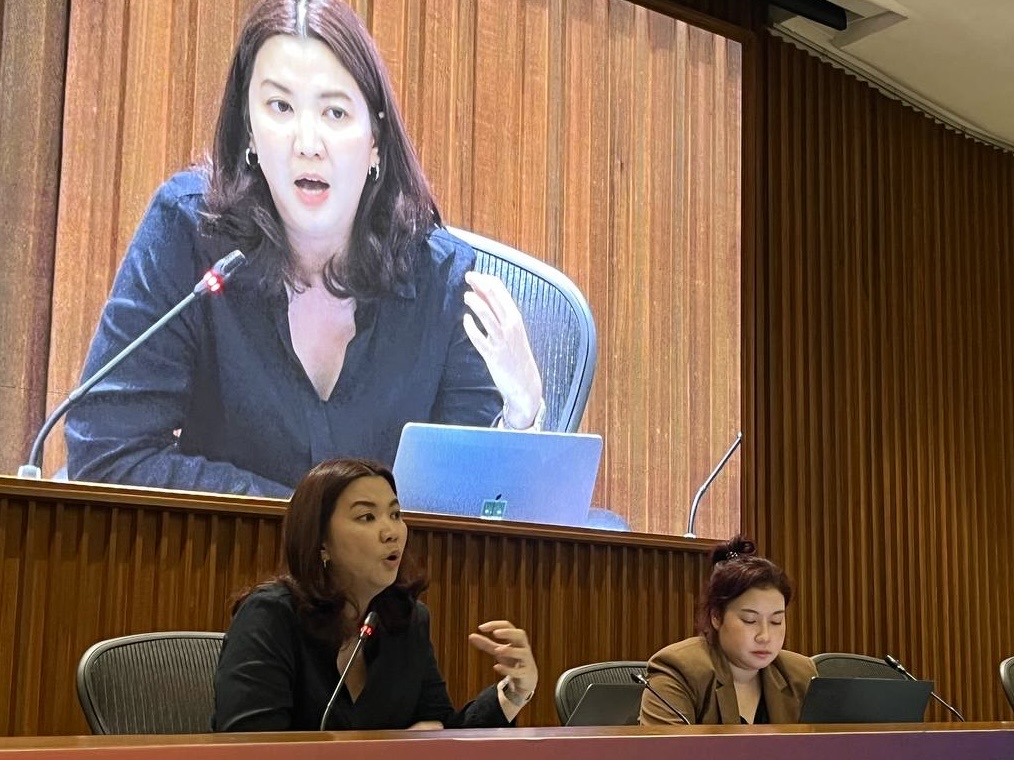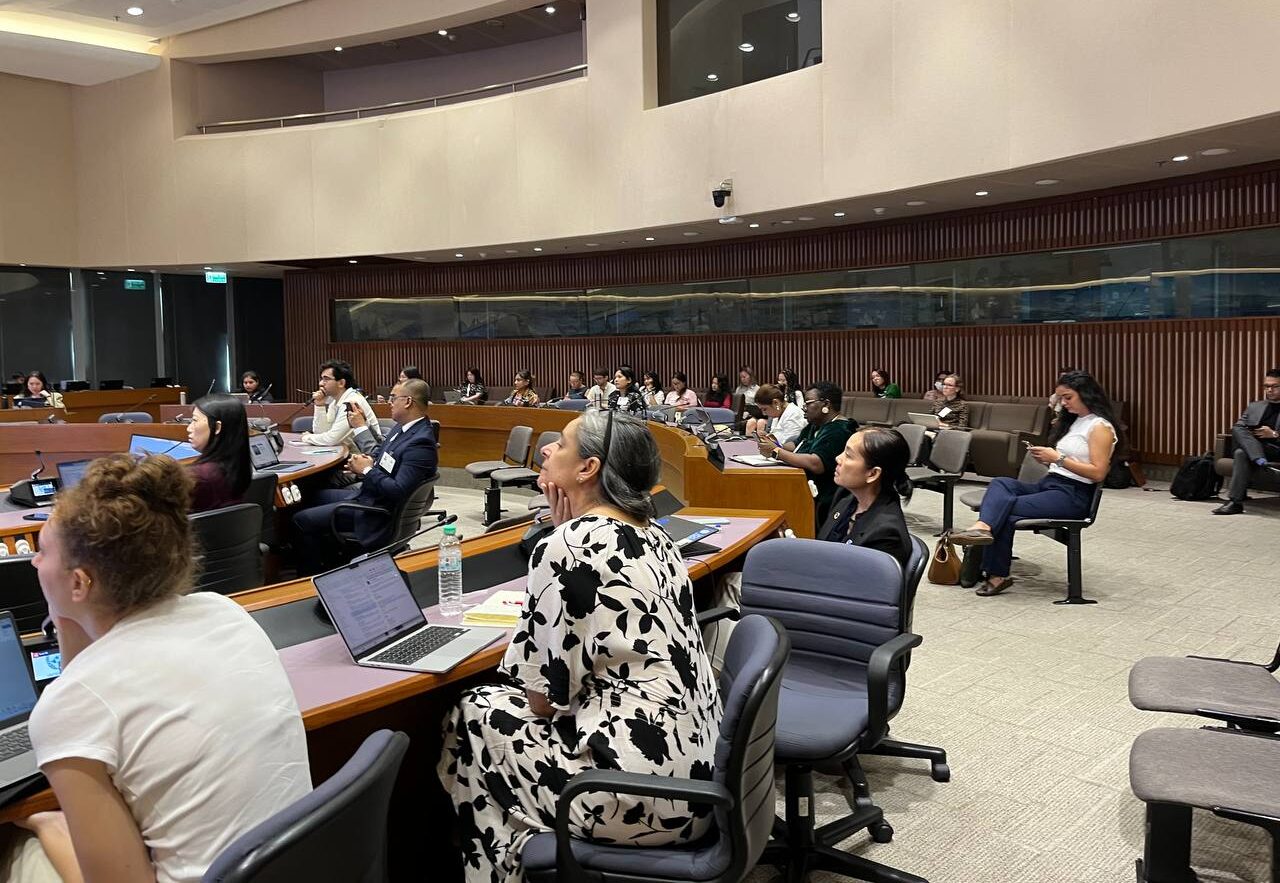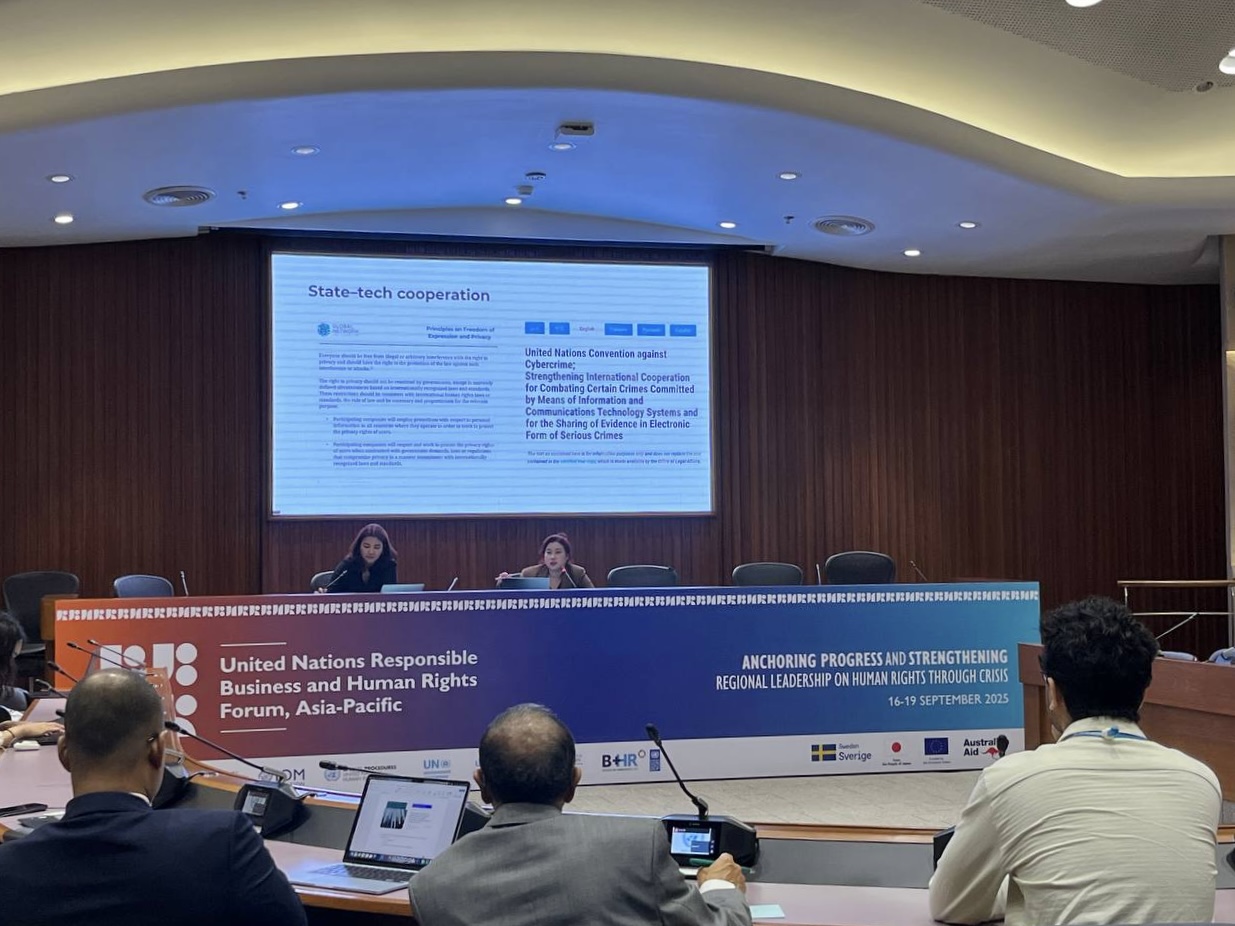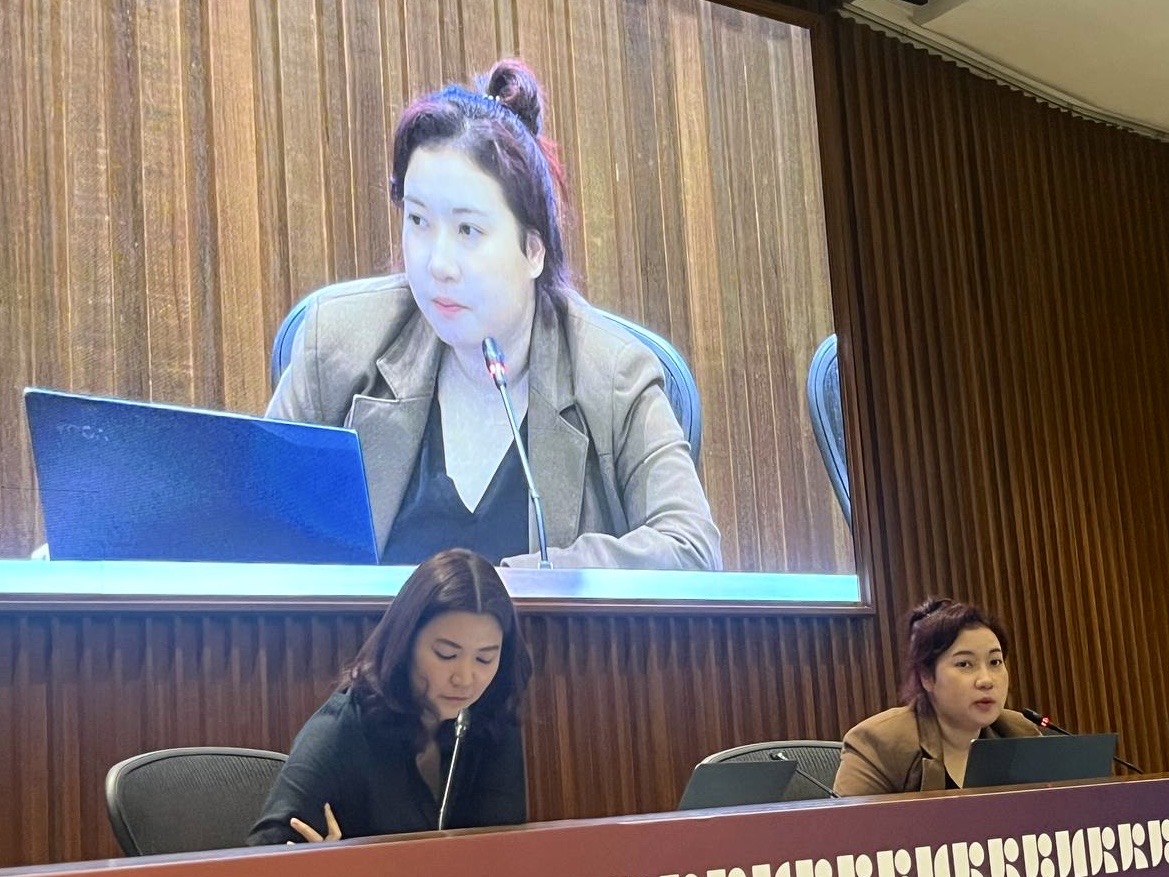On 18 September 2025, at the Asia-Pacific meeting of the UN Responsible Business and Human Rights Forum, the ICJ co-hosted a discussion session titled “From Regulatory Twilight Zone to Algorithmic Equality: Advancing International Law, Corporate Responsibility and Women’s Rights in the Digital and AI Era.”
The ICJ and other participants considered how to tackle the challenge of ensuring that both States and tech companies are willing and able to ensure human rights compliance in a rapidly evolving and unsettling digital landscape.
Participants examined the fluid boundaries between State obligations and corporate responsibilities in the digital space—particularly for technology companies—under the UN Guiding Principles on Business and Human Rights (UNGPs).
ICJ Senior Legal Adviser Sanhawan Srisod told participants that “The UNGPs say to us that there are clear State obligations and corporate responsibilities applicable everywhere, yet rapid technological change has blurred these lines, creating legal ambiguity and uncertainty.”
“Tech companies increasingly act as quasi-public actors—deciding what speech is permissible or providing essential services—often without the accountability or oversight that States are obliged to ensure,” added Srisod.
Participants grappled with the challenges of ensuring that companies resist government demands or laws that compromise human rights, and that accountability is achieved without succumbing to government abuse. The panel further highlighted the risk of companies becoming directly or indirectly involved in hostilities during armed conflict through their digital activities.
“Clearly the UNGPs apply to technology companies, but to ensure they are fit to address contemporary challenges and provide practical guidance, further development and progressive interpretation are required,” Srisod added.
The discussion also considered how technology companies and algorithmic decision-making increasingly impact women’s human rights, often without women’s participation.

“Women human rights defenders, diverse gender groups, and marginalized communities face significant risks—from targeted online harassment, surveillance, and repression to discriminatory algorithmic practices and online hate speech,” said Darika Bamrungchok, Southeast Asia Policy Analyst at Access Now.
“Too much of the [AI] debate has been framed through an ‘AI safety’ lens, focusing only on preventing harms, without engaging the communities most impacted. We advocate for a human-rights–centric approach to governing AI, with a strong gender perspective,” she added.
Ingrid Quinn, Senior Policy Advisor on AI, Rights & Innovation, proposed that the Committee on the Elimination of Discrimination against Women consider a dedicated General Recommendation on AI and ensure effective implementation of two new AI governance mechanisms reflected in UNGA Resolution A/RES/79/325 (adopted August 2025): an Independent International Scientific Panel on AI and a Global Dialogue on AI Governance.
The UN Responsible Business and Human Rights Forum, Asia-Pacific, held 16–19 September 2025, is the region’s leading annual platform bringing together governments, businesses, civil society, and other stakeholders to drive action on the UNGPs and promote responsible business conduct.
The session was co-hosted with the Danish Institute for Human Rights and Ingrid Quinn. Approximately 50 participants attended. It forms part of the ICJ and DIHR’s work under the Digital Democracy Initiative (DDI) to elaborate principles aimed at guiding efforts to protect human rights in the digital space. The panel also served to gather regional and domestic perspectives to ensure the principles reflect them.
Further Reading
ICJ and DIHR Launch Initiative on Global Principles on Human Rights in the Digital Space
Contact
Sanhawan Srisod, ICJ Senior Legal Adviser, Legal and Policy Office, e: sanhawan.srisod@icj.org







